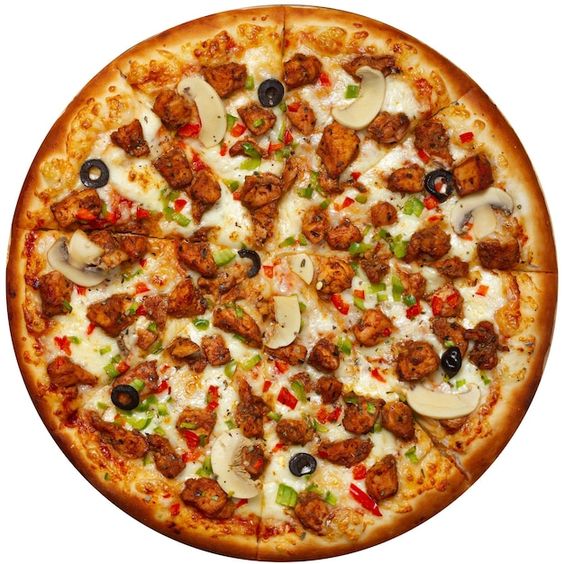Introduction to Pizza
Pizza, the beloved Italian dish, has captivated the taste buds of people worldwide. Its irresistible combination of dough, sauce, cheese, and various toppings makes it a universally cherished food. Let’s delve into the rich history, diverse types, and cultural significance of pizza.
History of Pizza
Origins
The origins of pizza trace back to ancient civilizations such as the Greeks, Egyptians, and Romans, who enjoyed flatbreads with toppings. However, the modern pizza we know today originated in Naples, Italy, in the 18th century.
Evolution over time
Initially a humble street food for the working class, pizza gained popularity rapidly, spreading across Italy and eventually reaching other parts of the world through Italian immigrants.
Popular Types of Pizza
Neapolitan
Neapolitan pizza, characterized by its thin, chewy crust and minimal toppings, adheres to strict guidelines, including specific dough ingredients and cooking methods.
New York Style
New York-style pizza features a thin, foldable crust with generous cheese and tomato sauce, reflecting the influence of Italian immigrants in New York City.
Chicago Deep Dish
In contrast, Chicago deep-dish pizza boasts a thick, buttery crust piled high with cheese, toppings, and a chunky tomato sauce layer, creating a hearty and indulgent meal.
Pizza Ingredients
Dough
The foundation of any good pizza is its dough, typically made from flour, water, yeast, salt, and olive oil. The quality of the dough greatly impacts the texture and flavor of the finished product.
Sauce
A flavorful tomato sauce serves as the base for most pizzas, often seasoned with garlic, herbs, and spices to enhance its taste.
Cheese
While mozzarella is the traditional choice for pizza cheese, variations like provolone, cheddar, and Parmesan can add depth and richness to the dish.
Toppings
From classic pepperoni and mushrooms to unconventional options like pineapple and BBQ chicken, the possibilities for pizza toppings are endless, allowing for endless customization.
The Art of Pizza Making
- Dough preparation
- Sauce creation
- Cheese selection
- Topping arrangement
Cultural Impact of Pizza
Pizza’s global popularity transcends borders and cultures, earning it iconic status as a symbol of comfort food and culinary innovation.
Health Considerations
While delicious, pizza can be high in calories, sodium, and saturated fat. However, incorporating whole grain crusts, lean proteins, and plenty of vegetables can make pizza a healthier option.
Pizza Around the World
Every corner of the globe has put its own unique spin on pizza, resulting in diverse variations like Japanese okonomiyaki pizza and Indian paneer tikka pizza.
| Outline: Introduction to Pizza History of PizzaOrigins Evolution over time Popular Types of PizzaNeapolitan New York Style Chicago Deep Dish Pizza IngredientsDough Sauce Cheese Toppings The Art of Pizza MakingDough preparation Sauce creation Cheese selection Topping arrangement Cultural Impact of PizzaGlobal popularity Iconic status Influence on cuisine Health ConsiderationsNutritional content Healthy alternatives Moderation Pizza Around the WorldUnique variations Regional specialties Pizza and Social GatheringsParty favorite Family dinners Office lunches Pizza in Popular CultureMovies TV shows Music references Pizza Industry and EconomyMarket size Employment opportunities Revenue generation Sustainability in Pizza ProductionIngredient sourcing Packaging Waste management Pizza and TechnologyOnline ordering Delivery services Pizza-making robots Tips for Enjoying PizzaBest storage practices Reheating techniques Pairing with beverages Conclusion | |
Pizza and Social Gatherings
Whether it’s a casual get-together with friends or a family movie night, pizza’s versatility and crowd-pleasing appeal make it the perfect choice for any occasion.
Pizza in Popular Culture
Pizza’s omnipresence in popular culture is evident through countless references in movies, TV shows, and music, cementing its status as a cultural phenomenon.
Pizza Industry and Economy
The pizza industry is a significant contributor to the global economy, supporting millions of jobs and generating billions in revenue annually.
Sustainability in Pizza Production
As consumers become more conscious of environmental issues, efforts to make pizza production more sustainable through responsible ingredient sourcing, eco-friendly packaging, and waste reduction are gaining traction.
Pizza and Technology
Advancements in technology have revolutionized the pizza industry, from online ordering platforms and mobile apps to automated pizza-making machines.
Tips for Enjoying Pizza
Whether you’re indulging in a freshly baked slice or reheating leftovers, these tips will ensure that every bite of pizza is a delightful experience.
Conclusion
Pizza’s enduring appeal lies in its simplicity, versatility, and universal appeal. As a cultural icon and culinary delight, pizza continues to bring people together, one slice at a time.
FAQs
- Is pizza originally from Italy?Yes, pizza originated in Naples, Italy, in the 18th century.
- What is the most popular pizza topping? Pepperoni is consistently ranked as the most popular pizza topping globally.
- How many slices are in a standard pizza? A standard pizza is typically cut into eight slices, although this can vary depending on the size and shape of the pizza.
- Can pizza be healthy? While pizza can be high in calories and fat, choosing whole grain crusts, lean protein, and plenty of vegetables can make it a nutritious meal option.
- What is the best way to reheat leftover pizza? The best way to reheat leftover pizza is in a preheated oven or skillet to ensure that the crust remains crispy and the toppings are heated through evenly.


